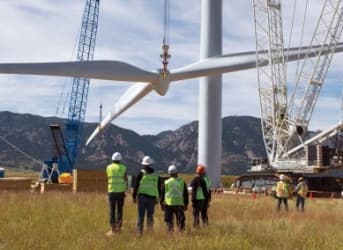When oil prices plunged in the 90s, Africa was a major beneficiary. Yes, exporters like Nigeria and Angola suffered as their revenues dropped, but overall the continent benefited.
Back then, oil majors, challenged by declining oil prices, the rise of the national oil companies (NOCs), and hemmed in by investor demand and high costs/risks of exploration, consolidated through mergers and acquisitions and focused on proven basins.
Independents, shut out of established basins, recruited good talent from the majors, formed alliances with other juniors as necessary, and pivoted to new formations and new countries. Some landed in Africa’s frontier, where barriers to entry were low and competition not too intense. Governments eager to attract oil companies didn’t demand too much. Ghana could only attract small independents during its license auctioning rounds between 2000 and 2006, for example.
The majors paid little attention until three independents – Tullow Oil, Anadarko and Kosmos – in 2006 and 2007 respectively, announced massive oil finds offshore Ghana in West Africa. The rush was on. For seven years independents announced material finds across Africa – Ghana, Sierra Leone, Liberia, Kenya, Uganda, Tanzania and Mozambique. Related: Resource Dependence Could Prove Fatal For Canadian Economy
Many Africans believe that becoming an oil producing nation promises a rocket ride to a modern future. John Kufuor, Ghana’s President at the time of the find noted "Oil is money, and we need money to do the schools, the roads, the hospitals…. we are doing so well, already. Now, with oil as a shot in the arm, we're going to fly.”
In its Vision 2040 Uganda sees oil and gas generating “revenues for … development of other strategic sectors such as infrastructure and human resource development” as it transforms into a middle income country. The IMF projected that Anadarko’s and ENI’s 2011 game-changing gas finds in Mozambique could attract $40 billion in investment for LNG by 2020; 2.7 times 2012 GDP.
But the anticipated boon from oil and gas is already having a corrosive effect. The African Development Bank reported signs of the dreaded Dutch disease in Ghana; agricultural output declining as oil production ramps up suggesting neglect of an important economic sector.
In Uganda, where one barrel of oil is yet to be produced, there have been claims, counter-claims, apologies and resignations surrounding corruption allegations in the country’s emerging oil sector.
Kenya, looking over the border at developments in Uganda, proposed in 2014 - after independents announced significant oil finds - to rewrite its laws to impose windfall and capital gains taxes on oil, gas and mining companies. Oil companies lamented the lack of certainty in Kenya’s governance structure which they believed could impede investments. Mozambique’s regulator requires that bidders for contracts show prior experience; which only individuals close to the government with privileged information can demonstrate. Related: Shell Betting Its Future On LNG
In Sierra Leone, Oranto accused the government of redrawing the boundaries of its exploration block in Anadarko’s and Repsol’s favor once the consortium announced its oil find in a neighboring block. The dispute prompted the Nigerian government to remind Sierra Leone that it, not Spain, had helped when the country was at war and landed the parties in U.S. courts, where they eventually settled.
It had been a whirlwind on the continent as high oil prices and record-setting finds ratcheted up competition and raised hopes of governments and citizens. The recent price decline, however, has rapidly cooled a hot market as Africa-focused explorers slowed or halted investments.
This current slow down comes early enough to warn these new oil and gas rich countries that the fossil fuels sector is a cyclical business. It’s a chance for countries to rebalance towards sustainable economic strategies with oil as one of several sectors.
Tanzania and Mozambique are banking on Asia as markets for their LNG. But so are Australia, Canada, the U.S. and Russia. There is much to do in East Africa to develop the assets and with Chinese growth slowing, will there be sufficient demand for all these projects?
Uganda plans to include a refinery in its oil sector development; which is reasonable considering most countries import refined products. The majority of Uganda’s exports go to the Common Market for Eastern and Southern Africa (COMESA). Uganda could become a major regional supplier. However, there have been suggestions that the planned refinery is much larger than needed. Related: Huge 100 Billion Barrel Oil Discovery Near London
Ghana has been an oil exporter for roughly five years yet the country is already dependent on oil at $99.38 per barrel to meet its 2015 budget. In the meantime, like most African countries, constant power cuts roil the economy Plans are to use natural gas, which is currently being flared, for power generation, yet delays persist.
Kenya is a regional leader in mobile money with mobile banking and mobile payments through M-PESA drawing millions of the unbanked into the formal economy.
Now M-PESA is headed to Europe. Most critically, Kenya’s mobile-centered financial innovations have unlocked access to solar energy for thousands in Kenya and Uganda. Pay-as-you go systems allow leasing and sales of solar solutions to customers unable to pay high capital costs in countries with weak or no developed credit markets . With reliable electricity, millions of dollars once spent on lamps, candles or stand-alone diesel generators can be invested in businesses and livelihoods.
Solving the electricity challenge is key to Africa’s economic development. If oil and gas money is to pay for much needed power plants in these new petroleum-rich countries, the decline in prices and China’s slowdown has shown that it might be time to rethink that plan. It’s better to learn this early.
By Ronke Luke for Oilprice.com
More Top Reads From Oilprice.com:
- How Much Water Does The Energy Sector Use?
- What’s Really Behind The U.S Crude Oil Build
- The Real History Of Fracking


















